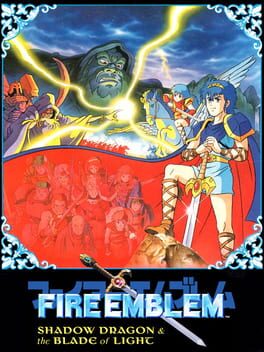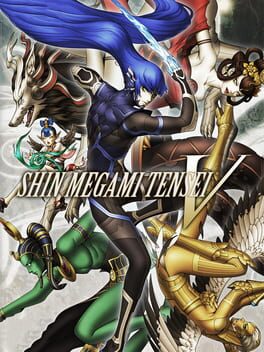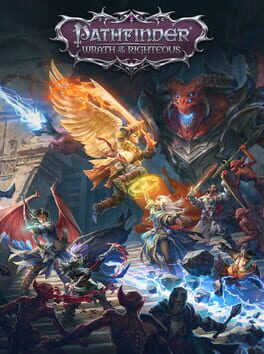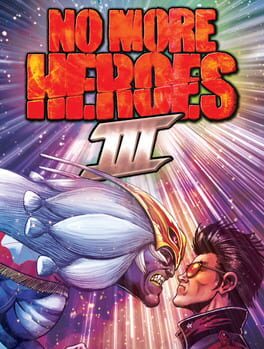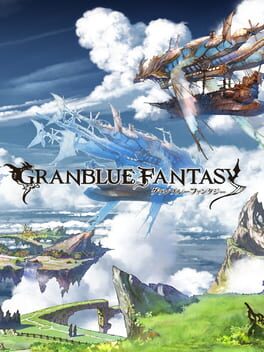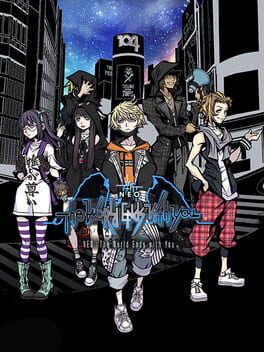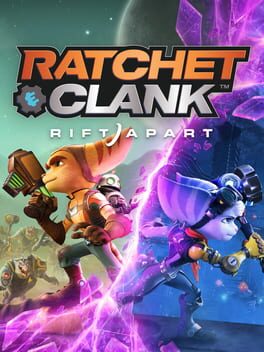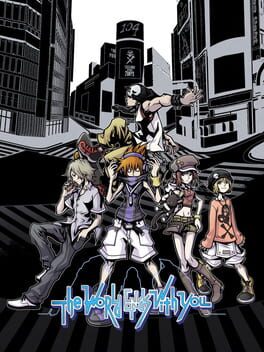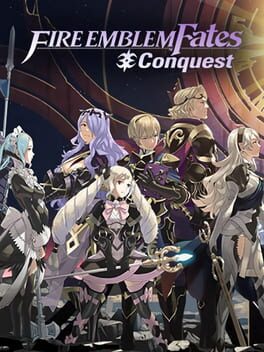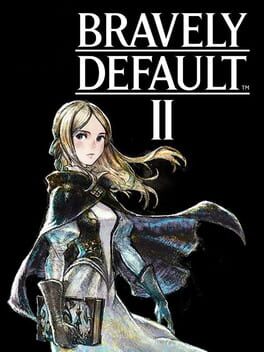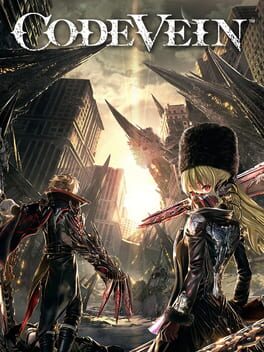Cerb
When I originally played this game I thought it was a rather outdated prototype of one of my favourite series in gaming. Upon a revisit due to it's anniversary for the Switch, and during a drought in terms of series releases, I think it's important to compare this game contextually to it's peers. There's no skating around the fact that this game is just very clunky and barebones, lacking many basic QoL features one might assume a game of this genre might require. However the most important thing that this game manages to achieve is a solid foundation and a good grasp on fundamentals that blueprint the rest of the series from this game. This game has a basic understanding of how to make a map more than just a square with forest tiles littered around, which sounds really basic but if I were to compare this game to the, even future games of the genre, and games I attempted to fill the hole left by the current Fire Emblem drought, I would find that this game achieves better fundamentals than the likes of Shining, Langrisser, Brigandine, Super Robot Wars etc. in just how it recognises that a limited palette of verbs meshes well with the basic but successful map design the game employs.
The actions are simple but it still required a decent degree of strategy, the fact that there are so few actions you can take, combined with the absolutely lopsided balance of everything in the game results in a better experience than a game of it's primitive nature may suggest, its not high art in terms of SRPGS/TRPGS but it manages a decently enjoyable swords and sorcery setting, and an overlarge roster of characters with distinguishable enough characteristics to enable a mechanical attachment to them. This game is honestly worth your time if you're a fan of the series, it establishes conventions and ideas that are still felt to this day meaningfully, while still being a decent game in it's own right.
The actions are simple but it still required a decent degree of strategy, the fact that there are so few actions you can take, combined with the absolutely lopsided balance of everything in the game results in a better experience than a game of it's primitive nature may suggest, its not high art in terms of SRPGS/TRPGS but it manages a decently enjoyable swords and sorcery setting, and an overlarge roster of characters with distinguishable enough characteristics to enable a mechanical attachment to them. This game is honestly worth your time if you're a fan of the series, it establishes conventions and ideas that are still felt to this day meaningfully, while still being a decent game in it's own right.
At the back of my mind I was always ready to say that Shadowbringers was a fluke, it was preceded by a story that had very little going for it, save for independent storylines divorced from the grander narrative here and there, and to get to Shadowbringers you had the brave the greatest trial of all; boredom from the base game content until Heavensward. However Endwalker embodies everything that made Shadowbringers good and sprinkles in some cheese, and adds the weight of finality to make a story for all the Warriors of Light, new and old, out there to be inspired to keep braving the future, in all it's anxieties and unknowns.
Endwalker isn't the most subtle of narratives, it is very blatant what this expansion is thematically about, and that's okay, it presents it all in a layer of cheese and earnestness that it's impossible not to catch the emotions that the game is throwing at you. It touches base on every previous expansion thematically and spreads a little bit on its own epilogue on each giving all the main story scenes the feeling of a victory long earned. It is a story about moving on, the ideas of the beauty of existence, and how easy it is to take for granted the feeling of existing, the power of emotions and how they can drive us forward when we're at our lowest point, but also how we can let them overwhelm us and fall into despair when unchecked. It is a story about how alienation from your peers can throw you in a direction you never thought you would ever pursue. It is a story about the fundamental disconnects behind people, but the hope that there is always a way to build a bridge against this disconnect. But most of all, it is a story about what a wonderful journey it was, and that the end is what you want it to be, shaped by your own hands and hard work.
There have been games that march to the end before, there have been games that closed off long running story arcs before, but I can't recall any that strive to build off everything that came before and succeed to the degree that Endwalker does. Endwalker is the culmination of a long journey, no matter when you started Final Fantasy XIV. Endwalker caps off the rebirth of Final Fantasy and Square Enix, triumphant and warm, from their lowest point of Final Fantasy XIV 1.0. It takes the success and failures of everything that comes before and invites you back in to love this world, and these characters for making it there with you. Endwalker is the journey to the end with all it's many stops and sights along the way and tells you that the adventure never ends as long as you are willing to traverse there, with your friends and comrades in tow.
Endwalker isn't the most subtle of narratives, it is very blatant what this expansion is thematically about, and that's okay, it presents it all in a layer of cheese and earnestness that it's impossible not to catch the emotions that the game is throwing at you. It touches base on every previous expansion thematically and spreads a little bit on its own epilogue on each giving all the main story scenes the feeling of a victory long earned. It is a story about moving on, the ideas of the beauty of existence, and how easy it is to take for granted the feeling of existing, the power of emotions and how they can drive us forward when we're at our lowest point, but also how we can let them overwhelm us and fall into despair when unchecked. It is a story about how alienation from your peers can throw you in a direction you never thought you would ever pursue. It is a story about the fundamental disconnects behind people, but the hope that there is always a way to build a bridge against this disconnect. But most of all, it is a story about what a wonderful journey it was, and that the end is what you want it to be, shaped by your own hands and hard work.
There have been games that march to the end before, there have been games that closed off long running story arcs before, but I can't recall any that strive to build off everything that came before and succeed to the degree that Endwalker does. Endwalker is the culmination of a long journey, no matter when you started Final Fantasy XIV. Endwalker caps off the rebirth of Final Fantasy and Square Enix, triumphant and warm, from their lowest point of Final Fantasy XIV 1.0. It takes the success and failures of everything that comes before and invites you back in to love this world, and these characters for making it there with you. Endwalker is the journey to the end with all it's many stops and sights along the way and tells you that the adventure never ends as long as you are willing to traverse there, with your friends and comrades in tow.
2021
I should preface this by saying this game is an absolute banger, in terms of the series however I find myself a little more mixed. The series doesn't exactly have a game that encapsulates all the good parts that have come before and Shin Megami Tensei V continues this trend with some incredible leaps forward, and a few stumbling points I had at the back of my mind my whole time playing.
Principally, this series has always been one of the mechanically strongest series in the genre and thankfully V continues that with an excellent system in it's own right, combining the Nocturne systems (one of many aspects it really wants to be Nocturne in) with the conveniences of the 4 duology. Unfortunately, I did find there was a seriously annoying regression with the main character's death equalling a game over, something the previous game had corrected. On the other hand, this game introduces the essence system which adds a whole new layer of customisability and preparation to the strategic gameplay which is a fantastic addition, on a more sentimental level it also allowed me to keep demons I like relevant throughout the whole game, even rewarding me for doing so since demons I kept around for a while often had higher stats than newly fused demons up until I hit the endgame demon 90+ chads.
In terms of atmosphere and world design, I quite enjoyed what this game had to offer. Instead of the dungeons the mainline series was known for, this opts for island pockets of areas connected to each other and it works well for the most part. The designers clearly did put some consideration into how a demon's circumstances dictated the kinda place they would hang out at (mermaids at a lake, Jack Frosts in a warehouse etc.) and it's very ambient in it's own way since the world at play here is also not really anything like the other games in the series, and this is where the world sorta loses me. In the other SMT games, demons at one point or another acclimate their society into the ruins of whichever Japanese city the game takes place in, but in this one they're kinda just hanging around which is strange, with the exception of the final overworld area, and there isn't really much thought put into how these demons function in this society, and yes I am aware that it's because in this entry society is just desert but later revelations make me question this viewpoint as well.
Philosophically, this series might be the weakest to date, Apocalypse aside, the representatives for each faction are somehow weaker than the 1 dimensional guys from the SNES games. It's strange because they're present throughout the entire game, and this entry opts for less extreme worldviews on the Law and Chaos spectrum, so they're views are even less pronounced to me. I actually still genuinely don't understand what the Chaos representative's character even is. SMT might not be a franchise that really focuses on stories, but the front facing characters for alignments has always been an important factor for illustrating how these worldviews align with a human point of view, and this game fails pretty hard in this regard.
And importantly I should note that this game seems really beholden to Nocturne and I don't think it works in it's favour. There are a lot of shared iconography and references which are cool nods but I'd hazard to say it contributes much to the game's own identity, which is already in a questionable state due to it's thematics and philosophy being as weak as they are.
However, these negatives don't really kill the game for me, the gameplay and encounters always had that Shin Megami Tensei seal of quality for me that at least kept the game really good and engaging that I'd just spend my free time plowing through it all as much as I can, and in a year of excellent games I'd still say this manages to stand high amongst the titans of this year. I'd overall recommend this entry as a great entry point for newcomers too, it is the most accessible SMT game for sure, while still maintaining the strengths of SMT as a series.
Principally, this series has always been one of the mechanically strongest series in the genre and thankfully V continues that with an excellent system in it's own right, combining the Nocturne systems (one of many aspects it really wants to be Nocturne in) with the conveniences of the 4 duology. Unfortunately, I did find there was a seriously annoying regression with the main character's death equalling a game over, something the previous game had corrected. On the other hand, this game introduces the essence system which adds a whole new layer of customisability and preparation to the strategic gameplay which is a fantastic addition, on a more sentimental level it also allowed me to keep demons I like relevant throughout the whole game, even rewarding me for doing so since demons I kept around for a while often had higher stats than newly fused demons up until I hit the endgame demon 90+ chads.
In terms of atmosphere and world design, I quite enjoyed what this game had to offer. Instead of the dungeons the mainline series was known for, this opts for island pockets of areas connected to each other and it works well for the most part. The designers clearly did put some consideration into how a demon's circumstances dictated the kinda place they would hang out at (mermaids at a lake, Jack Frosts in a warehouse etc.) and it's very ambient in it's own way since the world at play here is also not really anything like the other games in the series, and this is where the world sorta loses me. In the other SMT games, demons at one point or another acclimate their society into the ruins of whichever Japanese city the game takes place in, but in this one they're kinda just hanging around which is strange, with the exception of the final overworld area, and there isn't really much thought put into how these demons function in this society, and yes I am aware that it's because in this entry society is just desert but later revelations make me question this viewpoint as well.
Philosophically, this series might be the weakest to date, Apocalypse aside, the representatives for each faction are somehow weaker than the 1 dimensional guys from the SNES games. It's strange because they're present throughout the entire game, and this entry opts for less extreme worldviews on the Law and Chaos spectrum, so they're views are even less pronounced to me. I actually still genuinely don't understand what the Chaos representative's character even is. SMT might not be a franchise that really focuses on stories, but the front facing characters for alignments has always been an important factor for illustrating how these worldviews align with a human point of view, and this game fails pretty hard in this regard.
And importantly I should note that this game seems really beholden to Nocturne and I don't think it works in it's favour. There are a lot of shared iconography and references which are cool nods but I'd hazard to say it contributes much to the game's own identity, which is already in a questionable state due to it's thematics and philosophy being as weak as they are.
However, these negatives don't really kill the game for me, the gameplay and encounters always had that Shin Megami Tensei seal of quality for me that at least kept the game really good and engaging that I'd just spend my free time plowing through it all as much as I can, and in a year of excellent games I'd still say this manages to stand high amongst the titans of this year. I'd overall recommend this entry as a great entry point for newcomers too, it is the most accessible SMT game for sure, while still maintaining the strengths of SMT as a series.
In many ways Kingmaker was the modern Baldur's Gate, a faithful, ambitious, and rough implementation of tabletop roleplaying into a video game setting. Wrath of the Righteous is the modern Baldur's Gate 2, with much sharper writing, many gameplay tweaks, and an amazing reactive plot that weighs every decision and path you take meaningfully, allowing for a true role playing experience.
Starting off with the negatives, I don't love the encounter design in this game, admittedly there's a high chance im not utilising the mechanics at play to their fullest with every encounter (for reference I played a slightly modified normal difficulty) but there was a high occurrence of just turning a corner and finding your frontliner suddenly getting obliterated by some jackoff throwing 8 axes at the start of battle with a high initiative. Loot is also a bit inconsistent, there's a high amount of unique great loot, but as someone that focused purely on my MC using a dueling sword I legitimately could not find one come the penultimate act, leaving them relying mostly on the fact that they are the MC to carry that weight.
This game at its present state is also buggy, unsurprising given their last game, but still I ran into many bugs including not being able to ride my giant centipede, even though it was my mount which still devastates me to think about. As of the time of this writing, I can't even see the credits since it crashes upon them triggering for me. If bugs annoy you, I do recommend waiting down the line for a more polished experience like its predecessor.
The biggest and most glaring narrative has to be the crusade portion, or more specifically the crusade battles which take the form of a Heroes of Might and Magic rip off but there's no real strategy here, its all in the numbers and it takes a decade and honestly the actual battles themselves aren't worth your time, especially come chapter 5 where the game has the audacity to reset your armies. This portion isn't all bad though, decision making with the council is even stronger than Kingmaker's iteration, where there are more people contributing to discussion and potential solutions, it feels impactful with some strong storylines running throughout each council's major discussions. I would say don't turn on the Crusade auto mode however since it bars you from something as important as creating fast travel points, I do recommend downloading the mod Combat Relief to skip the battles but still engage with Crusade mode as the auto mode bars you off from certain Mythic Paths and other such important parts. I won't lie, crusade mode does pad your playtime out, and it is a drag so let's talk the best part of the game, the companions.
The companions in this game are fantastic, the writing quality for them is very strong and they are all fleshed out well with fantastic conclusions to every companion questline I finished. Riding off the main criticism of Kingmaker, the companions here regularly interact with each other, giving a proper idea of the relationships between party members. Western RPGs are normally pretty terrible at inter-party relationships, normally opting for an orbiting around the main character which WotR does not suffer from. Companion comments on events are normally further commented on by another, resulting in a back and forth mid conversation without involving the main character while adhering to character relationships, and it adds a crazy amount of personality to everyone. Yes, CRPGs have had ambient conversations between party members before like Dragon Age, but Wrath of the Righteous conversations being interspersed between every conversation gives them much more life than most western RPGs can claim.
Owlcat Games have also outdone themselves on the adaptational front, taking a malleable set of books intended for every Dungeon Master to put their own spin on to craft an excellent narrative that takes significant creative license where they could to completely overhaul the villains to function as an excellent story in it's own right, 10 excellent stories really since every mythic path (the system that sees your player character becoming unto a god) sees significant changes in main character identity and ambition, with a significant mythic questline to follow for each path boasting a different ending, and possibly a different final boss battle too in some cases. For this playthrough I played an aeon, an arbiter of cosmic space-time law thinking I'd be some sort of time cop, where I kinda am, but also my character frequently debated within themselves about the true nature of justice, impartiality and what it truly means to be a being with that kind of power. The aeon itself boasts several different endings depending on how your character combats this question, and I have to say the one I got for achieving what my mirror reflection decided was a true judge of cosmic law was an impressively bittersweet affair with significant gravitas and emotion behind what I had to do.
Highly recommend this game to any CRPG enthusiasts, this is one that should be remembered down the line along with the greats, and an incredible follow-up to Kingmaker.
Starting off with the negatives, I don't love the encounter design in this game, admittedly there's a high chance im not utilising the mechanics at play to their fullest with every encounter (for reference I played a slightly modified normal difficulty) but there was a high occurrence of just turning a corner and finding your frontliner suddenly getting obliterated by some jackoff throwing 8 axes at the start of battle with a high initiative. Loot is also a bit inconsistent, there's a high amount of unique great loot, but as someone that focused purely on my MC using a dueling sword I legitimately could not find one come the penultimate act, leaving them relying mostly on the fact that they are the MC to carry that weight.
This game at its present state is also buggy, unsurprising given their last game, but still I ran into many bugs including not being able to ride my giant centipede, even though it was my mount which still devastates me to think about. As of the time of this writing, I can't even see the credits since it crashes upon them triggering for me. If bugs annoy you, I do recommend waiting down the line for a more polished experience like its predecessor.
The biggest and most glaring narrative has to be the crusade portion, or more specifically the crusade battles which take the form of a Heroes of Might and Magic rip off but there's no real strategy here, its all in the numbers and it takes a decade and honestly the actual battles themselves aren't worth your time, especially come chapter 5 where the game has the audacity to reset your armies. This portion isn't all bad though, decision making with the council is even stronger than Kingmaker's iteration, where there are more people contributing to discussion and potential solutions, it feels impactful with some strong storylines running throughout each council's major discussions. I would say don't turn on the Crusade auto mode however since it bars you from something as important as creating fast travel points, I do recommend downloading the mod Combat Relief to skip the battles but still engage with Crusade mode as the auto mode bars you off from certain Mythic Paths and other such important parts. I won't lie, crusade mode does pad your playtime out, and it is a drag so let's talk the best part of the game, the companions.
The companions in this game are fantastic, the writing quality for them is very strong and they are all fleshed out well with fantastic conclusions to every companion questline I finished. Riding off the main criticism of Kingmaker, the companions here regularly interact with each other, giving a proper idea of the relationships between party members. Western RPGs are normally pretty terrible at inter-party relationships, normally opting for an orbiting around the main character which WotR does not suffer from. Companion comments on events are normally further commented on by another, resulting in a back and forth mid conversation without involving the main character while adhering to character relationships, and it adds a crazy amount of personality to everyone. Yes, CRPGs have had ambient conversations between party members before like Dragon Age, but Wrath of the Righteous conversations being interspersed between every conversation gives them much more life than most western RPGs can claim.
Owlcat Games have also outdone themselves on the adaptational front, taking a malleable set of books intended for every Dungeon Master to put their own spin on to craft an excellent narrative that takes significant creative license where they could to completely overhaul the villains to function as an excellent story in it's own right, 10 excellent stories really since every mythic path (the system that sees your player character becoming unto a god) sees significant changes in main character identity and ambition, with a significant mythic questline to follow for each path boasting a different ending, and possibly a different final boss battle too in some cases. For this playthrough I played an aeon, an arbiter of cosmic space-time law thinking I'd be some sort of time cop, where I kinda am, but also my character frequently debated within themselves about the true nature of justice, impartiality and what it truly means to be a being with that kind of power. The aeon itself boasts several different endings depending on how your character combats this question, and I have to say the one I got for achieving what my mirror reflection decided was a true judge of cosmic law was an impressively bittersweet affair with significant gravitas and emotion behind what I had to do.
Highly recommend this game to any CRPG enthusiasts, this is one that should be remembered down the line along with the greats, and an incredible follow-up to Kingmaker.
2021
2014
This review contains spoilers
The original game was lightning in a bottle, the way it impresses will only have ever impressed the first and only time due to how unique of a game it was. Fortunately NTWEWY does not fall into the trap that so many nostalgic returns of the past decade have fallen into, it claws its way into being its own entity, and it succeeds in being a great follow up, and game in its own right.
Starting off with the gameplay, which is probably the weakest aspect for me, the new system is honestly pretty good, if not for a few quirks that hold it back, namely enemy design and frustrating dodging mechanics. While there were good bosses in this game, many of the multi phase bosses fell into the trap of having fucking long ass phase transitions that really hampered my enjoyment when retrying failed attempts. The dodging is probably the worst part of the new gameplay for me, since pressing other pin buttons flies the camera over to the character using that pin, in the heat of battle dodging and pressing a pin on hard mode often leads to lethal consequences that I cannot say is on the part of the player. The side quests are also mostly not very interesting in this game, oft being dives into negative human feelings and helping them move on, while I could see them being in-line with the minor theme of moving on while change is happening around you, reflective of how much Shibuya has changed since 14 years ago, these side quests are still lacking in any depth to meaningfully connect to these themes like the main story does.
The real meat of this game, much like the last for me, is the story and setting and NTWEWY delivers, although I'd have to sit on whether it was as strong as the original entry. The main character Rindou captures a very different kind of modern angst compared to Neku from the previous, he embodies a very relatable modern sensibility of indecisiveness and not putting yourself out there which often gets him into situations where he's forced to turn back time to repeat his actions. A strong point in this game's favour is how Rindou never really invites comparison to Neku, they're completely different people and they each have their own ways of devising a solution and capability to achieve it. Rindou also embodying the meaning of "The World Ends with You" in a similar but different way from Neku also demonstrates how this game is worthy of the series name, while the phrase applied to Neku to mean expand your horizons, for Rindou it means the similar "open yourself up" something he consistently struggles to do due to his insecurity and indecisiveness throughout the story. Fret and Nagi are also good characters, although their character examinations come a bit too late, and (Nagi especially) are fairly abrupt and underexplored compared to the partners from the first game. However, Fret's storyline about his beliefs on being genuine versus being what people want you to be rings strong in the image focused world that has always surrounded Shibuya. Rounding out the party are returning characters Beat, Neku, Minamimoto, and newly introduced Reaper Shoka (Best girl).
A pitfall a modern follow up to an old game often runs into is how it beholds itself in reverence to the old game, and letting that get in the way of trying to be it's own entity and the game cleverly avoids that in how it positions the returning characters. Minamimoto is the crutch and mentor that gives the group the confidence to tackle the first week, and his absence is what causes the flaws of the individuals of the group to display, which is why the next party member is Beat who is someone that has overcome themselves and offer guidance and mentorship in a way I never thought the himbo could. Beat's positive vibes highlights not only how the people in the previous game had grown up and moved on from their dilemmas, but can actively wedge themselves into a group struggling through similar issues and give them guidance. Neku also fulfils a similar purpose, and it's very pleasing to see what a calming and confident presence he's become in this game, contrasting to his depiction in the awful A New Day from the switch re-release.
The aspect of the game that surprised me most is the final week, and makes me wonder when this game started development. Perhaps it is a projection, but the week being about a type of Noise called plague noise and spreading rapidly thoughout the city making people depressed, listless, and depriving the city of the energy it once had sounds very familiar to me, in 2021. Yes, people bustle like there isn't a pandemic but I'd be surprised if the pandemic had nothing to do with the direction the story takes in this game, and the soliloquys from the characters about the state of the city in the face of this syndrome hits close to home, as someone that has a love of Shibuya and what it represents to culture at large. If there's anything the developers of this game had managed to reproduce, it's their love for this city. Detail is still abundant with all the modern additions to Shibuya in beautiful detail. Much like real life fashion brands, while there are returning ones, new brands have replaced a lot of the older ones, although it maintains the same theme of Zodiac animals.
The game has two main themes I've surmised: Taking things into your own hands and not relying on a higher power, and trying to surmount a system working against you. In this game, the Reaper's game is rigged and the main three find themselves relying on more powerful people than them to solve their issues for them. Week 2 begins with the cast concerned that they will be erased simply because they don't have Minamimoto with them despite the three having their own unique abilities that they could not have navigated the first week without. As I've drunkenly ranted about to my friends before, the feeling of being part of a system stacked against you strikes very true, especially nowadays with so much out of your control, it's very easy to just accede to whatever higher power dictates it all. Staying to it's punk roots, this game defiantly and proudly shouts to keep pushing and eventually you'll find your way forward, and I can't help but admire this game for such a wonderful and relevant message, it's hard to not smile and cheer when the characters persistently trudge through a blatantly rigged system and come out on top.
The original game is one that I've analysed and immersed myself into completely. While I don't think this entry is as strong as that one, it's entirely possible with more time and research the hidden detail of this game will shine just as brightly as it's predecessor, but for what I just experienced, it was well worth my time and the follow up to the original I never thought I'd have.
And the music fucking slaps, of course.
Starting off with the gameplay, which is probably the weakest aspect for me, the new system is honestly pretty good, if not for a few quirks that hold it back, namely enemy design and frustrating dodging mechanics. While there were good bosses in this game, many of the multi phase bosses fell into the trap of having fucking long ass phase transitions that really hampered my enjoyment when retrying failed attempts. The dodging is probably the worst part of the new gameplay for me, since pressing other pin buttons flies the camera over to the character using that pin, in the heat of battle dodging and pressing a pin on hard mode often leads to lethal consequences that I cannot say is on the part of the player. The side quests are also mostly not very interesting in this game, oft being dives into negative human feelings and helping them move on, while I could see them being in-line with the minor theme of moving on while change is happening around you, reflective of how much Shibuya has changed since 14 years ago, these side quests are still lacking in any depth to meaningfully connect to these themes like the main story does.
The real meat of this game, much like the last for me, is the story and setting and NTWEWY delivers, although I'd have to sit on whether it was as strong as the original entry. The main character Rindou captures a very different kind of modern angst compared to Neku from the previous, he embodies a very relatable modern sensibility of indecisiveness and not putting yourself out there which often gets him into situations where he's forced to turn back time to repeat his actions. A strong point in this game's favour is how Rindou never really invites comparison to Neku, they're completely different people and they each have their own ways of devising a solution and capability to achieve it. Rindou also embodying the meaning of "The World Ends with You" in a similar but different way from Neku also demonstrates how this game is worthy of the series name, while the phrase applied to Neku to mean expand your horizons, for Rindou it means the similar "open yourself up" something he consistently struggles to do due to his insecurity and indecisiveness throughout the story. Fret and Nagi are also good characters, although their character examinations come a bit too late, and (Nagi especially) are fairly abrupt and underexplored compared to the partners from the first game. However, Fret's storyline about his beliefs on being genuine versus being what people want you to be rings strong in the image focused world that has always surrounded Shibuya. Rounding out the party are returning characters Beat, Neku, Minamimoto, and newly introduced Reaper Shoka (Best girl).
A pitfall a modern follow up to an old game often runs into is how it beholds itself in reverence to the old game, and letting that get in the way of trying to be it's own entity and the game cleverly avoids that in how it positions the returning characters. Minamimoto is the crutch and mentor that gives the group the confidence to tackle the first week, and his absence is what causes the flaws of the individuals of the group to display, which is why the next party member is Beat who is someone that has overcome themselves and offer guidance and mentorship in a way I never thought the himbo could. Beat's positive vibes highlights not only how the people in the previous game had grown up and moved on from their dilemmas, but can actively wedge themselves into a group struggling through similar issues and give them guidance. Neku also fulfils a similar purpose, and it's very pleasing to see what a calming and confident presence he's become in this game, contrasting to his depiction in the awful A New Day from the switch re-release.
The aspect of the game that surprised me most is the final week, and makes me wonder when this game started development. Perhaps it is a projection, but the week being about a type of Noise called plague noise and spreading rapidly thoughout the city making people depressed, listless, and depriving the city of the energy it once had sounds very familiar to me, in 2021. Yes, people bustle like there isn't a pandemic but I'd be surprised if the pandemic had nothing to do with the direction the story takes in this game, and the soliloquys from the characters about the state of the city in the face of this syndrome hits close to home, as someone that has a love of Shibuya and what it represents to culture at large. If there's anything the developers of this game had managed to reproduce, it's their love for this city. Detail is still abundant with all the modern additions to Shibuya in beautiful detail. Much like real life fashion brands, while there are returning ones, new brands have replaced a lot of the older ones, although it maintains the same theme of Zodiac animals.
The game has two main themes I've surmised: Taking things into your own hands and not relying on a higher power, and trying to surmount a system working against you. In this game, the Reaper's game is rigged and the main three find themselves relying on more powerful people than them to solve their issues for them. Week 2 begins with the cast concerned that they will be erased simply because they don't have Minamimoto with them despite the three having their own unique abilities that they could not have navigated the first week without. As I've drunkenly ranted about to my friends before, the feeling of being part of a system stacked against you strikes very true, especially nowadays with so much out of your control, it's very easy to just accede to whatever higher power dictates it all. Staying to it's punk roots, this game defiantly and proudly shouts to keep pushing and eventually you'll find your way forward, and I can't help but admire this game for such a wonderful and relevant message, it's hard to not smile and cheer when the characters persistently trudge through a blatantly rigged system and come out on top.
The original game is one that I've analysed and immersed myself into completely. While I don't think this entry is as strong as that one, it's entirely possible with more time and research the hidden detail of this game will shine just as brightly as it's predecessor, but for what I just experienced, it was well worth my time and the follow up to the original I never thought I'd have.
And the music fucking slaps, of course.
It's a Ratchet and Clank game so of course it plays well, although I do have to express disappointment with the level design and story. The level design is really basic with really easy exploratory puzzles for optional collectibles, there really isn't anything challenging to do in the game optionally. The arena is also boring, as its straight arena wave challenges with minor permutations with not much variation.
The story and writing is definitely a step down from the original trilogy, and A Crack in Time, I'm not really sure what the intention of the story really is here to begin with, it's all rather basic with not much going on for it. At first it seems like a celebration of Ratchet and Clank, but it really isn't, it ends up being just a basic underdogs against the villain story, but the villains here are pretty awful too. The main villain this time around is set up really well, and I assume the intention was that they were actually pathetic, but there really wasn't anything too threatening about them in the end anyway, even with an all powerful weapon.
It's still a good game, and a very impressive technical achievement but where's this games legacy once that technical achievement wears off? In the end, that's definitely my biggest issue with this entry, there's not much going on for it. It doesn't have the sharp writing of the original trilogy, but it doesn't have much character exploration like the future trilogy either.
The story and writing is definitely a step down from the original trilogy, and A Crack in Time, I'm not really sure what the intention of the story really is here to begin with, it's all rather basic with not much going on for it. At first it seems like a celebration of Ratchet and Clank, but it really isn't, it ends up being just a basic underdogs against the villain story, but the villains here are pretty awful too. The main villain this time around is set up really well, and I assume the intention was that they were actually pathetic, but there really wasn't anything too threatening about them in the end anyway, even with an all powerful weapon.
It's still a good game, and a very impressive technical achievement but where's this games legacy once that technical achievement wears off? In the end, that's definitely my biggest issue with this entry, there's not much going on for it. It doesn't have the sharp writing of the original trilogy, but it doesn't have much character exploration like the future trilogy either.
Shibuya is often cited as the epicentre for youth culture, at least at it's peak in the 2000s and early 2010s, many aspects of this district embody this from their shopping centres, to the type of music you would hear from the giant billboard television advertising loud jpop to a massive crosswalk of people walking every direction, surrounded by art trying to speak to someone, no matter how manufactured, or genuine a message it is. All of this is embodied in The World Ends With You, a remarkably unique game because of how it incorporates its style, aesthetics, and cultural history into every element it can. It is impossible to seperate this game from the culture and time it belongs to, ironically this makes it timeless in a lot of ways as a time capsule to an era where punk and angst manifested into noise, bombast, and individuality.
Remarkably, The World Ends with You deftly weaves this into its mechanics, with fashion being, appropriately, stat boosting "armour" that varies in effectiveness with the varying trends of fashion in each district, and pins (think more badges) which are the attacks of the game. While a relatively negligible mechanic in practice, particularly in post-game due to the large assortment of extremely powerful unbranded clothes, it cannot be denied that it has a purpose extended beyond gameplay and weaves itself into the foundation of the game. The way the game's foundation of Shibuya manifests even further into its story, while on a surface level it can feel like a dated story about an angsty teen angry at the world learning to see past himself and look at other people as well, there is a lot of subtext present about the way his eyes open up, even beyond his ability to develop friendships once he focuses more on other people, such as the way he views at art, fashion, and individual expression in general.
The key in what makes The World Ends with You one of my favourite games in how all the little details contribute to the greater themes and ideas. A detail I've often seen overlooked are the thoughts you can mindread from people around Shibuya, while you may look at a few thoughts here and there, I find most players would only beeline towards the relevant thoughts for story progression but there are a surprising number of unique thoughts spread across the many generic npcs in the world. Again, this directly loops into our main character's realisation about the people outside his own peripheral vision, as the player perceives people outside the main cast, or even the side cast, and their thoughts permeating the players view, as this mindreading view is required to encounter enemies outside of bosses.
The World Ends with You is getting a sequel in a few months, but whether that game is good or not won't affect how this game is still a beautiful time capsule of an experience, that is well worth your time if you have even a passing interest in anything that Shibuya was about before it's, arguable, modern corporatization and sanitisation. Feel free to post copium if NEO: TWEWY sucks.
Remarkably, The World Ends with You deftly weaves this into its mechanics, with fashion being, appropriately, stat boosting "armour" that varies in effectiveness with the varying trends of fashion in each district, and pins (think more badges) which are the attacks of the game. While a relatively negligible mechanic in practice, particularly in post-game due to the large assortment of extremely powerful unbranded clothes, it cannot be denied that it has a purpose extended beyond gameplay and weaves itself into the foundation of the game. The way the game's foundation of Shibuya manifests even further into its story, while on a surface level it can feel like a dated story about an angsty teen angry at the world learning to see past himself and look at other people as well, there is a lot of subtext present about the way his eyes open up, even beyond his ability to develop friendships once he focuses more on other people, such as the way he views at art, fashion, and individual expression in general.
The key in what makes The World Ends with You one of my favourite games in how all the little details contribute to the greater themes and ideas. A detail I've often seen overlooked are the thoughts you can mindread from people around Shibuya, while you may look at a few thoughts here and there, I find most players would only beeline towards the relevant thoughts for story progression but there are a surprising number of unique thoughts spread across the many generic npcs in the world. Again, this directly loops into our main character's realisation about the people outside his own peripheral vision, as the player perceives people outside the main cast, or even the side cast, and their thoughts permeating the players view, as this mindreading view is required to encounter enemies outside of bosses.
The World Ends with You is getting a sequel in a few months, but whether that game is good or not won't affect how this game is still a beautiful time capsule of an experience, that is well worth your time if you have even a passing interest in anything that Shibuya was about before it's, arguable, modern corporatization and sanitisation. Feel free to post copium if NEO: TWEWY sucks.
Something of note about the Fire Emblem series is that it can never pull off a game where the gameplay is of equal quality to the writing, there are FE games with amazing writing, with trivial gameplay and on the other end of the spectrum you have this game.
As any person with even a passing familiarity will tell you, this games main story is worthless. The supports in this game are decent but, frankly, are damaged by a shoddy localisation job that has no interest in preserving the little character writing this game had with some baffling changes made to characterisation and tonal changes that completely butcher a character like Beruka for example. With that out of the way, Fire Emblem Fates Conquest is one of the best TRPG gameplay experiences ever crafted with incredible map design, based around systems that aid player momentum, and a rare balance of not having system bloat (a prevalent hallmark of the genre) while also being complex enough for a personalised and engaging experience.
The key strength this game has over other Fire Emblems is the map design, dragon veins (once the game moves onto conquest only maps) are the key feature in many chapters where they're used to either add an extra layer of consideration for the player to strategise around, or to give the player a new tool to incorporate into their strategies to gain the tactical advantage the enemy may not have. Coupled with the games weighting towards player phase engagements (due to debuffing weapons, skills, and an incentive to at least seriously wound enemies on your turn) and the brutal difficulty (one of the few Fire Emblem games that pull off lunatic with more smart enemy placements and different skillsets rather than stat bloat) combine together to make some of the most well thought out and executed map design of the genre. Highly recommend people to check this out since its often lumped with it's peers, and overlooked as a result.
As any person with even a passing familiarity will tell you, this games main story is worthless. The supports in this game are decent but, frankly, are damaged by a shoddy localisation job that has no interest in preserving the little character writing this game had with some baffling changes made to characterisation and tonal changes that completely butcher a character like Beruka for example. With that out of the way, Fire Emblem Fates Conquest is one of the best TRPG gameplay experiences ever crafted with incredible map design, based around systems that aid player momentum, and a rare balance of not having system bloat (a prevalent hallmark of the genre) while also being complex enough for a personalised and engaging experience.
The key strength this game has over other Fire Emblems is the map design, dragon veins (once the game moves onto conquest only maps) are the key feature in many chapters where they're used to either add an extra layer of consideration for the player to strategise around, or to give the player a new tool to incorporate into their strategies to gain the tactical advantage the enemy may not have. Coupled with the games weighting towards player phase engagements (due to debuffing weapons, skills, and an incentive to at least seriously wound enemies on your turn) and the brutal difficulty (one of the few Fire Emblem games that pull off lunatic with more smart enemy placements and different skillsets rather than stat bloat) combine together to make some of the most well thought out and executed map design of the genre. Highly recommend people to check this out since its often lumped with it's peers, and overlooked as a result.
2021
In a strange way, Bravely Default II manages to be a regression in so many ways from the previous entries. Starting mechanically from the battle system which employs a turn gauge that is far more flawed in execution than the original turn system. The other new addition to the core battle system is the counter system where enemies perform specific actions in response to certain triggers, which sounds great in theory, but in execution by around the halfway point of the game you're being bombarded with bosses that have the "counter every ability" trigger. Combined with the turn gauge system some of the battles can involve enemies taking 3-4 turns due to gaining BP from counters before your highest speed character can even take 1 turn.
The side quests in this game are some of the worst I've played in JRPG history, they're even lower than MMORPG sidequests. At least in MMORPGS you get flavour text or something to give you context on why you're doing these bitch quests for people, one amazing npc in this game just tells you "I hate goblin archers!" before the game prompts you to go kill 4 goblin archers. It's ludicrous to forgive content like this just because its optional, especially in a classic style jrpg where exploration is meant to be mechanically rewarded with a decent reward, and there are so many side quests in this game that give you nothing of value.
The story is also a huge step backward, crazily enough, the main cast is okay, with the exception of the main protagonist, Seth, who is an lifeless, boring, flat character insert that just gets incredible powers through a completely nebulous chosen one plot. The side characters also share the same fate as Seth, with the saving grace that they appear for far less time than Seth does. The games presentation is also super flawed, and ruins the emotional impact scenes are meant to have. The cutscene direction is extremely weak except for the last few cutscenes in the game and not even the music can save those scenes from feeling completely undercooked.
Overall Bravely Default II had me oddly perplexed at how little it has to offer, even in the Switch's limited library of exclusive JRPGs. Despite having very low expectations going in, especially after Bravely Second, I find myself astounded by how it has broken those expectations by delivering me one of the most undercooked, underdeveloped, and forgettable JRPG's I've ever played.
The side quests in this game are some of the worst I've played in JRPG history, they're even lower than MMORPG sidequests. At least in MMORPGS you get flavour text or something to give you context on why you're doing these bitch quests for people, one amazing npc in this game just tells you "I hate goblin archers!" before the game prompts you to go kill 4 goblin archers. It's ludicrous to forgive content like this just because its optional, especially in a classic style jrpg where exploration is meant to be mechanically rewarded with a decent reward, and there are so many side quests in this game that give you nothing of value.
The story is also a huge step backward, crazily enough, the main cast is okay, with the exception of the main protagonist, Seth, who is an lifeless, boring, flat character insert that just gets incredible powers through a completely nebulous chosen one plot. The side characters also share the same fate as Seth, with the saving grace that they appear for far less time than Seth does. The games presentation is also super flawed, and ruins the emotional impact scenes are meant to have. The cutscene direction is extremely weak except for the last few cutscenes in the game and not even the music can save those scenes from feeling completely undercooked.
Overall Bravely Default II had me oddly perplexed at how little it has to offer, even in the Switch's limited library of exclusive JRPGs. Despite having very low expectations going in, especially after Bravely Second, I find myself astounded by how it has broken those expectations by delivering me one of the most undercooked, underdeveloped, and forgettable JRPG's I've ever played.
1997
2019
Code Vein is one of the most incredibly insane and laughably bad games I've ever played. It somehow jacks up everything that was bad about the Souls games to an incredibly degree that it's hard not to see as a parody of souls games and anime. Full disclosure but I also played most of the game in multiplayer which furthered added to the experience of playing an interactive version of The Room where I can see the passion seeping through every aspect of this game but misdirected passion much like Tommy Wiseau himself.
The level design is some of the worst I had the pleasure of laughing the whole way through with my mates, so many fuck you moments I have to assume the developers were sitting at their desks with the biggest shit eating grins on their faces going "HEHEHEH IM SO SMART" and I lapped up every unseeable death pit and enemy spawning from a wall. It is incredibly impressive for a game to have made a map that is useless in 2019, the map doesn't have layers and a lot of the levels vertically stack across large distances so the map becomes a liability more than anything.
This game is really seen to be believed how ludicrously bad it is, give it a shot and drink in all the awful map design, terrible combat choices, and baffling systems that were just put in because they looked cool while misunderstanding everything that a good soulsborne does right
The level design is some of the worst I had the pleasure of laughing the whole way through with my mates, so many fuck you moments I have to assume the developers were sitting at their desks with the biggest shit eating grins on their faces going "HEHEHEH IM SO SMART" and I lapped up every unseeable death pit and enemy spawning from a wall. It is incredibly impressive for a game to have made a map that is useless in 2019, the map doesn't have layers and a lot of the levels vertically stack across large distances so the map becomes a liability more than anything.
This game is really seen to be believed how ludicrously bad it is, give it a shot and drink in all the awful map design, terrible combat choices, and baffling systems that were just put in because they looked cool while misunderstanding everything that a good soulsborne does right
While Moon has been cited as the inspiration for many experiences, most notably Undertale, it manages to be an experience unlike those games in very nuanced and surprising ways, especially considering how far back a progenitor this game is to video game genre deconstruction tropes and common themes. Normally when a game seeks out to satirise a genre it usually comes off as pessimistic, admittedly this is due to the nature of such satires bringing in meta-commentary about the disparity between the world in a video game and the world outside, but Moon struck me as a very optimistic experience despite its premise.
Yes, it features the classic genre deconstruction trope of classical style protagonists in video games coming off more murderous and psychopathic in a more realistic setting but it's not actually where the game chooses to focus, even that trope is played with in that most of the townspeople mock the hero for their behaviour and regard them as a general nuisance more than anything. When the game pulls back and allows you free exploration you find a remarkable ecosystem of characters with their own sets of routines, special events, and reactions to other events and items in a uniquely impressive way, doubly so in lieu of the time and platform it was originally developed for.
These NPCs are where the real optimism of the game shines through, with how they interact with one another and the player still coming off as lighthearted and, most of all, never meanspirited. There are mean characters for sure, such as the old man in the windmill and the hero but both are part of the protagonist's journey to find love, a journey that is the main focus of the game as you find love you also spread love which is a wholly beautiful and optimistic view on a more grounded and mundane kind of RPG quest. Overall, this game is a wonderful adventure, more point and click adventure style than RPG admittedly, that's well worth visiting even now as a timeless classic that will stay with you long after you reach the ending.
Yes, it features the classic genre deconstruction trope of classical style protagonists in video games coming off more murderous and psychopathic in a more realistic setting but it's not actually where the game chooses to focus, even that trope is played with in that most of the townspeople mock the hero for their behaviour and regard them as a general nuisance more than anything. When the game pulls back and allows you free exploration you find a remarkable ecosystem of characters with their own sets of routines, special events, and reactions to other events and items in a uniquely impressive way, doubly so in lieu of the time and platform it was originally developed for.
These NPCs are where the real optimism of the game shines through, with how they interact with one another and the player still coming off as lighthearted and, most of all, never meanspirited. There are mean characters for sure, such as the old man in the windmill and the hero but both are part of the protagonist's journey to find love, a journey that is the main focus of the game as you find love you also spread love which is a wholly beautiful and optimistic view on a more grounded and mundane kind of RPG quest. Overall, this game is a wonderful adventure, more point and click adventure style than RPG admittedly, that's well worth visiting even now as a timeless classic that will stay with you long after you reach the ending.
